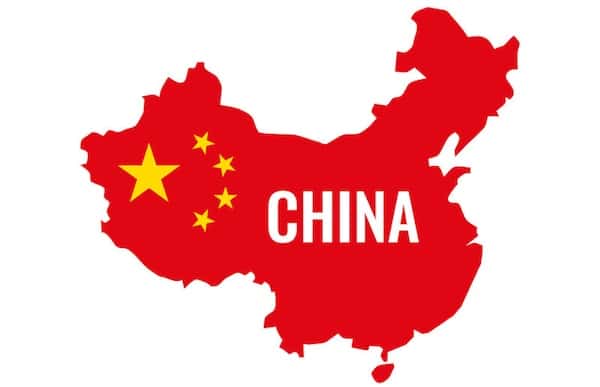The Economist, a leading British weekly, enjoys wide global readership. It recently covered the thoughts and written work of two scholars, both Chinese, one now government-based, in Beijing and the other based in an academic institution in the U.S. Only the former, was branded as an “ideologue” however. Paraphrasing Professor Julius Sumner Miller: Why is this so?
In mid-February, Chaguan, the (pen-named) Economist columnist based in Beijing, reviewed a new book by Professor Minxin Pei, who was introduced as an academic based at Claremont McKenna College in California. You can read the introductory paragraphs of this review here. Chaguan is, in real-life, David Rennie, the son of a former MI6 Director. He is the Beijing Bureau Chief for the Economist. He has previously written as a columnist for this prominent weekly as Charlemagne, from the EU, Bagehot, from the UK, and Lexington, from the U.S.
Professor Pei’s book is entitled, “The Sentinel State: Surveillance and the Survival of Dictatorship in China”. The book is reviewed in detail and favourably—but more on this in a moment.
A week after the Pei book review, the Economist’s U.S.-based Lexington column ran a review of the work of another Chinese academic, Wang Huning, who is now a senior leader in the Communist Party of China (CPC). You can read the introductory paragraphs of this review here. In real life, Lexington is a widely experienced American journalist, James Bennet, who is a senior editor at the Economist.
Wang Huning has had an extraordinary career, first as a leading academic scholar and subsequently as a low-profile but erudite political leader. After graduating in Shanghai with a Master of Laws degree from Fudan University in 1981, he joined the CPC in 1984. He published widely and eventually became Dean of Fudan Law School in 1994. He wrote influentially on the need for China to maintain cultural and intellectual autonomy as its development pace quickened, year after year. In 1995 he began working directly with CPC leaders in Beijing, intellectually influencing the last three supreme leaders in China, Jiang Zemin, Hu Jintao, and, today, Xi Jinping. In 2022, he became the fourth ranking member of the CPC’s highest political body, the Politburo Standing Committee.
Although Professor Pei is aptly treated as a scholar by the Economist, this recent Lexington column labelled the cerebral Mr Wang an “ideologue”. And not just any ideologue—the column is headlined: “The Flaws that China’s chief ideologue found in America”. The subtitle adds that,
As a young visitor decades ago [in 1988] Wang Huning saw an unstoppable undercurrent of crisis [in the U.S.].
Both these well-written columns smoothly advance their cases. However, the brazenly tilted labelling of these two scholars, one of whom has been particularly influential, tells us much about the fundamental priorities of the Economist especially when dealing with China, whose rise, today, they yearn to see contained.
Time now, though, to return to the review of Professor Pei’s book. Chaguan emphasises the remarkable fact that China controls dissent without need of “a KGB or Stasi” of its own (the “FBI or Shin Bet” could also be aptly listed but are not). Think about this for a moment: a single-party nation of 1.4 billion people is able to protect its primary security interests for decades on end, without need to resort to a hugely staffed, internal security institution. This is extraordinary—and prima facie positive for the entire society. What other country could do this? The book review, in a nutshell, argues that this outcome relies on state of the art electronic surveillance (available worldwide) and, curiously, having “a secret policeman on every street”.
There may be some weight in this explanation. But here is another perspective—one that is ignored in the Chaguan review.
First, Martin Jacques explained the special relationship between the Chinese state and its citizens in this way over ten years ago:
“The importance of maintaining the unity of China as a civilisation, as a state, as a civilisation-state, is the most important political imperative for Chinese politicians. We [the West] believe the government’s reach should be restrained. The Chinese have a completely different view, they view [government] as the head of the family. This represents a profoundly different relationship between the state and society that we find in the West.” According to Jacques, following and believing in the state is, for the Chinese, “an expression and embodiment of Chinese civilization.”
Next, CPC governance in China remains especially well supported (around 90% or above support levels in some surveys) across China’ huge population. This has been confirmed in repeated Western initiated opinion polls in China (before, during and since COVID) conducted, for example: by the Ash Centre at Harvard University by the Edelman Group and by Statista. China-based analysis by Rana Mitter (Oxford) and Elsbeth Johnson (MIT) confirmed those Ash Centre findings, revealing up to 95% public satisfaction, in 2021. Chinese people overall, robustly approve of the Central Government, in particular. This, in turn, suggests that strong backing for and compliance with the national security regime (see Jacques, above) would not be surprising. Which, in turn, measurably reduces the need to rely on a massively staffed and equipped Chinese equivalent of the FBI, Shin Bet, KGB or Stasi.
Finally—and rather awkwardly for Lexington—events since 1988 have surely confirmed Wang’s acute understanding, at that time, of the unstoppable undercurrent of crisis in the U.S. he witnessed. Indeed, many may say this verifies that Wang is an exceptionally observant scholar.
Richard Cullen is an Adjunct Professor in the Faculty of Law at the University of Hong Kong. He was previously a Professor in the Department of Business Law and Taxation at Monash University in Melbourne, Australia.

